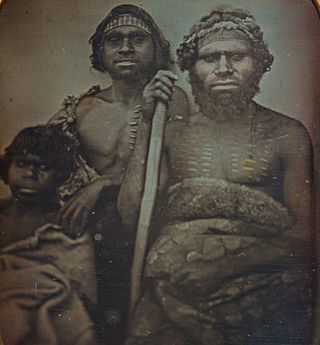Related Research Articles

A notary public of the common law is a public officer constituted by law to serve the public in non-contentious matters usually concerned with general financial transactions, estates, deeds, powers-of-attorney, and foreign and international business. A notary's main functions are to validate the signature of a person ; administer oaths and affirmations; take affidavits and statutory declarations, including from witnesses; authenticate the execution of certain classes of documents; take acknowledgments ; provide notice of foreign drafts; provide exemplifications and notarial copies; and, to perform certain other official acts depending on the jurisdiction. Such transactions are known as notarial acts, or more commonly, notarizations. The term notary public only refers to common-law notaries and should not be confused with civil-law notaries.
A plaintiff is the party who initiates a lawsuit before a court. By doing so, the plaintiff seeks a legal remedy. If this search is successful, the court will issue judgment in favor of the plaintiff and make the appropriate court order. "Plaintiff" is the term used in civil cases in most English-speaking jurisdictions, the notable exceptions being England and Wales, where a plaintiff has, since the introduction of the Civil Procedure Rules in 1999, been known as a "claimant" and Scotland, where the party has always been known as the "pursuer". In criminal cases, the prosecutor brings the case against the defendant, but the key complaining party is often called the "complainant".

The Herald Sun is a conservative daily tabloid newspaper based in Melbourne, Australia, published by The Herald and Weekly Times, a subsidiary of News Corp Australia, itself a subsidiary of the Murdoch owned News Corp. The Herald Sun primarily serves Melbourne and the state of Victoria and shares many articles with other News Corporation daily newspapers, especially those from Australia.
A summons is a legal document issued by a court or by an administrative agency of government for various purposes.
Adjudication is the legal process by which an arbiter or judge reviews evidence and argumentation, including legal reasoning set forth by opposing parties or litigants, to come to a decision which determines rights and obligations between the parties involved.
The call to the bar is a legal term of art in most common law jurisdictions where persons must be qualified to be allowed to argue in court on behalf of another party and are then said to have been "called to the bar" or to have received "call to the bar". "The bar" is now used as a collective noun for barristers, but literally referred to the wooden barrier in old courtrooms, which separated the often crowded public area at the rear from the space near the judges reserved for those having business with the court. Barristers would sit or stand immediately behind it, facing the judge, and could use it as a table for their briefs.

Terra nullius is a Latin expression meaning "nobody's land". Since the nineteenth century it has occasionally been used in international law as a principle to justify claims that territory may be acquired by a state's occupation of it. There are currently three territories sometimes claimed to be terra nullius: Bir Tawil, four pockets of land near the Danube due to the Croatia–Serbia border dispute, and parts of Antarctica, principally Marie Byrd Land.

Case citation is a system used by legal professionals to identify past court case decisions, either in series of books called reporters or law reports, or in a neutral style that identifies a decision regardless of where it is reported. Case citations are formatted differently in different jurisdictions, but generally contain the same key information.

Koori is a demonym for Aboriginal Australians from a region that approximately corresponds to southern New South Wales and Victoria. The word derives from the Indigenous language Awabakal. For some people and groups, it has been described as a reclaiming of Indigenous language and culture, as opposed to relying on European titles such as "Aboriginal". The term is also used with reference to institutions involving Koori communities and individuals, such as the Koori Court, Koori Radio and Koori Knockout.

The Waterloo Creek massacre refers to a series of violent clashes between mounted police, civilian vigilantes and Indigenous Gamilaraay peoples, which occurred southwest of Moree, New South Wales, Australia, during December 1837 and January 1838. The Waterloo Creek Massacre site is listed on the New South Wales Heritage Register as a place of significance in frontier violence leading to the murder of Gamilaraay people. The events have been subject to much dispute, due to wildly conflicting accounts by various participants and in subsequent reports and historical analyses, about the nature and number of fatalities and the lawfulness of the actions. Interpretation of the events at Waterloo Creek was raised again during the controversial "history wars" which began in the 1990s in Australia.
Native title refers to rights, recognised by Australian law, held by Aboriginal and Torres Strait Islander groups or individuals to land that derive from their maintenance of their traditional laws and customs. These Aboriginal title rights were first recognised as a part of Australian common law with the decision of Mabo v Queensland in 1992. The doctrine was subsequently implemented and modified via statute with the Native Title Act 1993.

The Independent Commission Against Corruption (ICAC) is an integrity agency of the Government of New South Wales responsible for eliminating and investigating corrupt activities and enhancing the integrity of the state's public administration. The commission was established in 1989, pursuant to the Independent Commission Against Corruption Act, 1988 (NSW), modeled after the ICAC in Hong Kong.

Law reports or reporters are series of books that contain judicial opinions from a selection of case law decided by courts. When a particular judicial opinion is referenced, the law report series in which the opinion is printed will determine the case citation format.
Web scraping, web harvesting, or web data extraction is data scraping used for extracting data from websites. Web scraping software may directly access the World Wide Web using the Hypertext Transfer Protocol or a web browser. While web scraping can be done manually by a software user, the term typically refers to automated processes implemented using a bot or web crawler. It is a form of copying in which specific data is gathered and copied from the web, typically into a central local database or spreadsheet, for later retrieval or analysis.

The states and territories are the second level of government of Australia. The states are administrative divisions that are self-governing polities that are partly sovereign, having ceded some sovereign rights to the federal government. They have their own constitutions, legislatures, executive governments, judiciaries and law enforcement agencies that administer and deliver public policies and programs. Territories can be autonomous and administer local policies and programs much like the states in practice, but are still legally subordinate to the federal government.
Bible Believers is the antisemitic website of the Bible Believers' Church of Sydney, New South Wales, Australia. Not to be confused with "Whole Bible Believers" which is based in the US.
Law practice management software is software designed to manage a law firm's case and client records, billing and bookkeeping, schedules and appointments, deadlines, computer files and to facilitate any compliance requirements such as with document retention policies, courts' electronic filing systems and, in the UK, the Solicitors' Accounts Rules as defined by the Solicitors Regulation Authority.
The Judicial Commission of New South Wales is an independent statutory corporation of the New South Wales Government that provides sentencing information and continuing education to and examines complaints made against judicial officers in New South Wales, Australia.
Jacqueline Sarah Gleeson is an Australian judge. She has been a Justice of the High Court of Australia since 1 March 2021, and was a judge of the Federal Court of Australia, based in Sydney, from April 2014 to February 2021.

Codelfa Construction Pty Ltd v State Rail Authority of New South Wales, ("Codelfa") is a widely cited Australian contract law case, which serves as authority for the modern approach to contractual construction. The case greatly influenced the development of the Eastern Suburbs railway line. In terms of contract law, the case addresses questions of frustration, construction and the parol evidence rule. The case diverged from the well established English approach regarding the use of extrinsic evidence in contractual interpretation.
References
- ↑ "Her Majestery's Courts official web site". Archived from the original on 10 June 2008. Retrieved 11 July 2007.
- ↑ Law Glossary
- ↑ Legal Banter
- ↑ New South Wales records official web site
- ↑ Queensland records official web site
- ↑ Australian Department of Environment and Water Resources official web site
- ↑ New South Wales official web site
- ↑ Decision from an Australian Ombusman
- ↑ Tasmania records official web site
- ↑ Newsletter of the Maine Board of Pharmacy